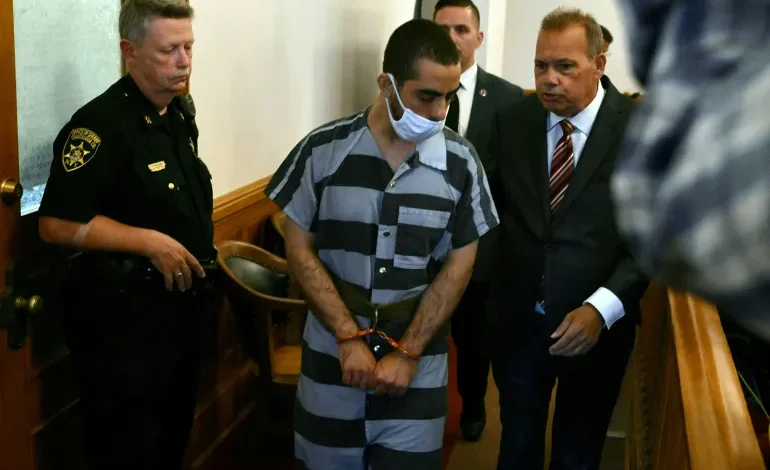Trial of Salman Rushdie attacker to launch with tricky jury selection

The trial of a man who attacked Indian-British author Salman Rushdie two years ago on a charge of attempted murder is due to start in the United States.
Jury selection was set to begin on Tuesday for the trial of Hadi Matar, who repeatedly stabbed the 77-year-old novelist in the face, neck and abdomen during a public lecture in New York state in August 2022. Prosecutors and the defence have suggested the process could be tricky, with the global environment helping to promote “bias” against Islam.
The attack on Rushdie, who was previously the target of death threats over his writings on Islam, resulted in the loss of his right eye and damage to his liver, among other injuries.
Matar, 26, has pleaded not guilty to charges of second-degree attempted murder and second-degree assault over the attack at the Chautauqua Institution in western New York.
The trial has been delayed twice, most recently after his lawyer unsuccessfully tried to move it to a different venue, saying Matar could not get a fair trial in Chautauqua. He has refused a plea deal for a 20-year sentence.
Prosecutors in the federal case argue Matar’s alleged attack was not random but motivated by a fatwa, or death threat, issued by Iran’s leadership against Rushdie over the author’s 1988 novel The Satanic Verses, which many Muslims consider to be blasphemous.
After the attack, the suspect told the media he travelled from his home in New Jersey after seeing the Rushdie event advertised because he disliked the novelist, saying Rushdie had attacked Islam.
Rushdie is to be among the first witnesses to testify at the trial. Since the attack, the author has published a memoir and said in interviews he believed he was going to die on the stage.
Raised in a Muslim Kashmiri family, the multiple-award-winning writer was forced into a decade of hiding in 1989 when Ayatollah Ruhollah Khomeini, then Iran’s supreme leader, called for him to be killed.That provoked a storm of protest across the Western world in support of free speech. The Iranian government said in 1998 it would no longer back the fatwa, and Rushdie ended his years as a recluse.










